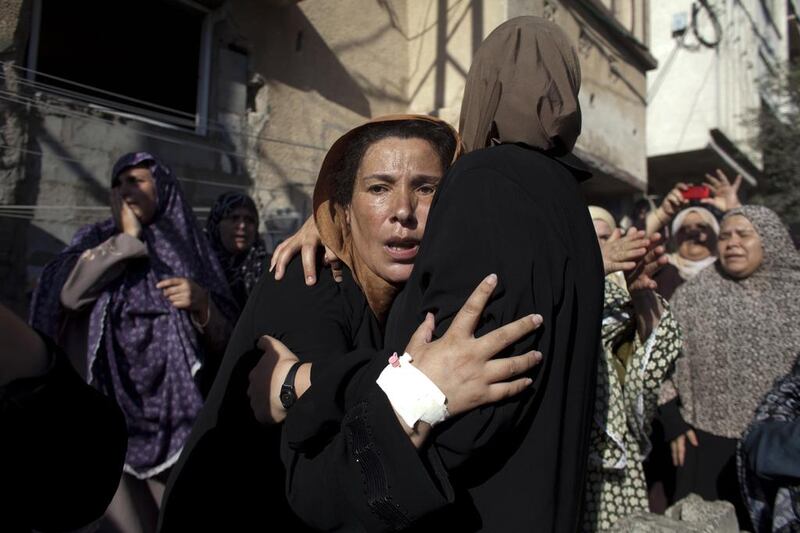GAZA CITY // The family of four Palestinian children killed when Israel bombed a beach during last summer’s Gaza war were indignant on Friday over the closure of an investigation into the incident.
The Israeli army, which launched the investigation after the 50-day war ended, announced late on Thursday that the “tragic” attack had not violated international law, and said it was closing the case.
The attack was one of the most widely covered and controversial incidents of the war, taking place in full view of international media.
“Israel behaves as if it’s a country above international law,” said Zakariya Bakr, the uncle of the children who died.
“It’s not unusual for the occupation, which shells houses with their occupants inside them, and kills children, to declare its soldiers innocent.”
“We urge the international community to act seriously to stop this farce,” he added, referring to several army investigations into alleged misconduct during the July-August war.
On July 16, cousins Ahed Atef Bakr and Zakaria Ahed Bakr, both aged 10, nine-year-old Mohamed Ramez Bakr and 11-year-old Ismail Mohamed Bakr were playing on the beach in Gaza City when they were hit in two separate air strikes.
The incident is among those likely to be presented by the Palestinians to the International Criminal Court as evidence of alleged Israeli war crimes.
But the army said in its report that it had decided to “close the investigation file, in the absence of a suspicion regarding the commission of a criminal offence by IDF soldiers.”
The report said the army had targeted an area of the beach that had been used exclusively by militants and separated from civilians.
The “attack was aimed at figures who were understood to be militants from Hamas’s naval forces,” it said, adding that they were “not identified, at any point during the incident, as children”.
“Under the circumstances ... it would not have been possible for the operational entities involved to have identified these figures, via aerial surveillance, as children,” it said.
Western journalists who witnessed the incident and its aftermath said the children had been playing on that area of the beach, which was not clearly separated from civilians.
“It was absolutely crystal clear ... from the figures running, that they were children,” one journalist said.
“They were all very, very small, I thought they were much younger than they were.”
At an IDF briefing where investigations into Gaza were announced, the journalist said, the army showcased their surveillance capability to distinguish civilians from militants.
“There needs to be a question answered, how did they not know they were children?” he said.
The army said it based the investigation on testimony by soldiers and officers, media footage and other documents, but was unable to take direct witness testimony from Gazans because witnesses declined to meet.
One Western journalist said he had volunteered himself to a senior IDF official as a witness, but was never contacted.
The war killed 2,200 Palestinians, most of them civilians and more than 500 of them children, and 73 Israelis, mostly soldiers.
* Agence France-Presse





